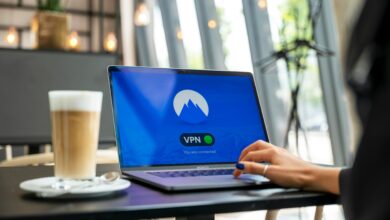How to protect sensitive and private information online

In the news these days, it’s hard to go a few days without seeing about a major data breach, which could potentially expose millions of people’s personal data to criminals. You can protect yourself from identity theft by protecting your information online, which refers to the act of others stealing financial data or personal information, such as your address or social security number.
Your credit card may be fraudulently charged, or you may even lose money from your tax refund if your Social Security number has been compromised. These guidelines will help you avoid both the hassles and the bigger problems of identity theft. It would be best if you were vigilant when it comes to protecting your personal information online.
However, there are a variety of ways to keep yourself safe online. Here are a few tips to prevent your personal info from getting into the wrong hands.
Use Strong passwords
Use some special characters beyond just words and numbers that a cybercriminal could easily figure out. It’s wiser to use a combination of letters, numbers and special characters and I advise you to change them from time to time. It’s also better to use different passwords for all your online accounts – A password manager will help you keep track.
If possible, use two-factor authentication. As a result, your account is protected with a second layer of security: you will receive a text message with a passcode to enter after logging in with your password, for example.
Avoid oversharing on social media
Social media is an awesome place to share updates with your friends and family. However, there is a caution. There are some people with evil eyes. I advise you to check your privacy settings to see who can see your photos and content online.
And it is highly not recommended to post your private photos and sensitive information like your credit card details, and social security number because they might result in a hefty loss to your belongings online.
Use Extra protection Online
Make sure you have anti-virus, anti-spyware, and a firewall installed. Additionally, you may wish to consider using a VPN like Surfshark VPN, which can protect your identity and data online.
If you use an anti-virus on the browser level it will automatically filter all malware and harmful sites that do not require your attention. So, better of using some paid tools for extra safety.
Extra tip:
Look at the top of your browser before entering personal information into a website. An SSL-secured site has a lock symbol and URL that begins with “HTTPS.” Another way to determine if the site is credible is to check its privacy policy, its contact information, or its “verified secure” seal.
Overview
It’s important to remember that the more information you share online, the more likely it is that it will be compromised by those with ill intentions. However, be vigilant and communicate online with a healthy amount of skepticism, and private data will remain that way.
I hope this article will throw some light on the importance of being alert on the internet and how to save your private information online. Now over to you.

